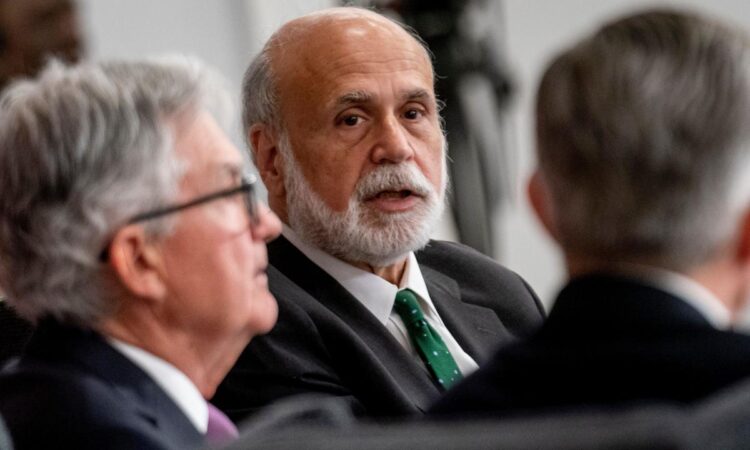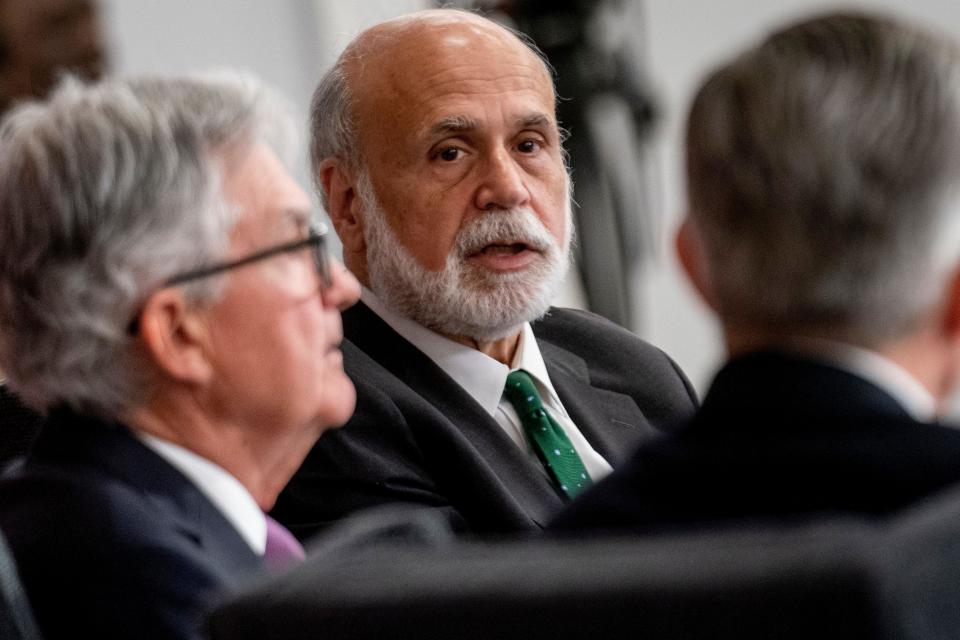UK inflation ‘unavoidable’ but Bank of England should revamp forecasting model, says Bernanke


The double digit record high inflation that the UK experienced was “inevitable,” a former chairman of the US Federal Reserve has said.
Ben Bernanke told the Treasury committee that the “significant inflation” would still have happened even if the Bank of England’s processes had been better.
“Avoiding inflation entirely would have been essentially impossible without throwing the economy into essentially a depression.
“Significant inflation was unavoidable, and every market economy experienced that,” he said.
Bernanke was explaining to MPs his review of the Bank of England’s forecasting methods earlier this year.
The Bernanke review reported that the BoE’s economic model needed revamping, and that key systems were out of date.
The former chair of the Fed said that the BoE wasn’t alone in miscalculating the threat to the economy coming out of the pandemic, stating that that central banks in general made a collective mistake, by thinking supply chain disruption would be swiftly resolved.
“[Central banks thought] the supply chain disruptions would be taken care of relatively quickly by profit-maximising firms, who would finding replacement inputs or alternative ways to make their products.
“In fact, the supply chain disruptions took a lot longer than most people – including experts in the field – thought would happen.”
Still, the Nobel laureate told MPs that central banking “is a difficult job” and it is “very difficult to forecast what is going to happen”.
Read more: Bank of England holds interest rates but hints at summer cut
The Bank of England has been widely accused of failing to act sooner on inflation, which hit a record high of 11.1% in autumn 2022, far over Threadneedle’s target of 2%. It has now fallen to 3.2% in March.
Bernanke said he did not think the Bank had “ignored inflation expectations” before it spiralled but reiterated one of the main ideas of his review: the Bank did not “devote enough time” to the maintenance on the infrastructure it used to model inflation.
“The Bank of England was in fact, very much engaged in putting out fires – dealing with the current issues. Of course, criticism coming from Parliament and from the public and they didn’t devote enough time to the maintenance, updating and work on the infrastructure.”
He told the Treasury Select Committee that when considering shocks to inflation, “before the event, it is a difficult judgment to make” .
Looking forward, Bernanke said it may be possible to improve the use of Bank’s economic forecasts, namely by including alternative scenarios and being more transparent about the thought process.
Read more: When will interest rates fall and what should you do?
Noting that focusing on just one forecast “isn’t as transparent as I’d like it to be”, Bernanke said that “heavy emphasis on a single forecast creates a sense that there is too much knowledge and certainty about what is going to happen. At the same time, it doesn’t give you a sense of what the alternatives are, how policy could be different, how the economy could be different and doesn’t give you a reach enough view of how the policy decision is made”.
He said that there should be quantitative analysis of past forecasts to discover how they could be improved, with a regular series of review meetings at the Bank including members of the Monetary Policy Committee.
Bernanke also urged the BoE to place less emphasis on inflation forecasts, noting the Bank puts more weight on its quantitative forecast that other central banks.
Watch: UK inflation was ‘inevitable’, says former Fed chair
Download the Yahoo Finance app, available for Apple and Android.





